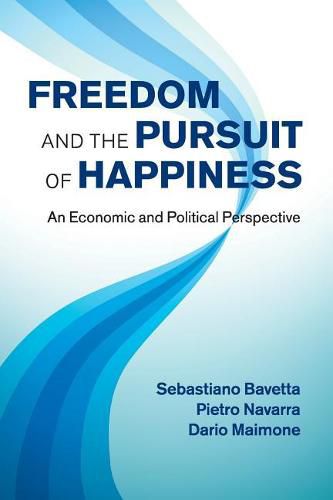Readings Newsletter
Become a Readings Member to make your shopping experience even easier.
Sign in or sign up for free!
You’re not far away from qualifying for FREE standard shipping within Australia
You’ve qualified for FREE standard shipping within Australia
The cart is loading…






This book is about the relationship between different concepts of freedom and happiness. The book’s authors distinguish three concepts for which an empirical measure exists: opportunity to choose (negative freedom), capability to choose (positive freedom), and autonomy to choose (autonomy freedom). They also provide a comprehensive account of the relationship between freedom and well-being by comparing channels through which freedoms affect quality of life. The book also explores whether the different conceptions of freedom complement or replace each other in the determination of the level of well-being. In so doing, the authors make freedoms a tool for policy making and are able to say which conception is the most effective for well-being, as circumstances change. The results have implications for a justification of a free society: maximizing freedoms is good for its favorable consequences upon individual well-being, a fundamental value for the judgment of human advantage.
$9.00 standard shipping within Australia
FREE standard shipping within Australia for orders over $100.00
Express & International shipping calculated at checkout
This book is about the relationship between different concepts of freedom and happiness. The book’s authors distinguish three concepts for which an empirical measure exists: opportunity to choose (negative freedom), capability to choose (positive freedom), and autonomy to choose (autonomy freedom). They also provide a comprehensive account of the relationship between freedom and well-being by comparing channels through which freedoms affect quality of life. The book also explores whether the different conceptions of freedom complement or replace each other in the determination of the level of well-being. In so doing, the authors make freedoms a tool for policy making and are able to say which conception is the most effective for well-being, as circumstances change. The results have implications for a justification of a free society: maximizing freedoms is good for its favorable consequences upon individual well-being, a fundamental value for the judgment of human advantage.